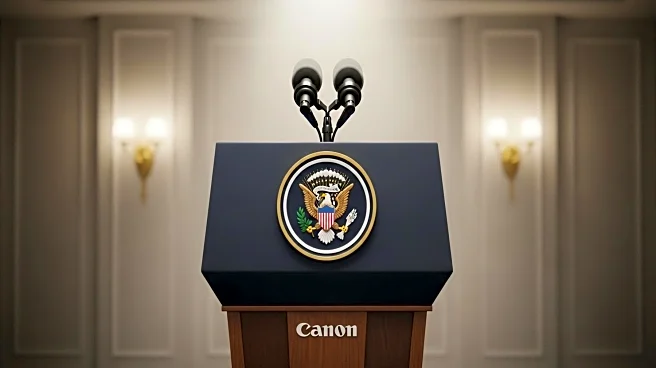What's Happening?
During a speech to generals and admirals in Quantico, President Trump addressed the issue of language that he believes should not be used by Americans. He mentioned that there are two 'N-words' that are considered inappropriate, sparking curiosity and discussion among attendees and commentators. The speech was part of a broader engagement with military leaders, focusing on communication and conduct within the armed forces. Comedians on the show 'Have I Got News For You' attempted to guess the specific words President Trump was referring to, adding a layer of public interest and media coverage to the event.
Why It's Important?
The discussion initiated by President Trump highlights ongoing debates about language and its impact on societal norms and values. By addressing this issue in a military context, it underscores the importance of communication standards within the armed forces, which can influence broader public discourse. The reaction from comedians and media personalities reflects the cultural sensitivity surrounding language and the power of words in shaping public perception. This event may influence future discussions on language policies and the role of leadership in setting communication standards.
What's Next?
The speech may prompt further analysis and commentary from political analysts, media outlets, and civil society groups. There could be calls for clarification or elaboration on the specific language President Trump referred to, potentially leading to public debates or policy discussions. Military leaders might consider reviewing communication guidelines to align with the sentiments expressed by President Trump, ensuring that language used within the armed forces reflects broader societal values.
Beyond the Headlines
This event touches on the ethical dimensions of language use and the responsibility of leaders to guide public discourse. It raises questions about freedom of speech and the balance between maintaining respectful communication and allowing open dialogue. The cultural implications of language restrictions could lead to discussions about inclusivity and diversity in communication practices.








